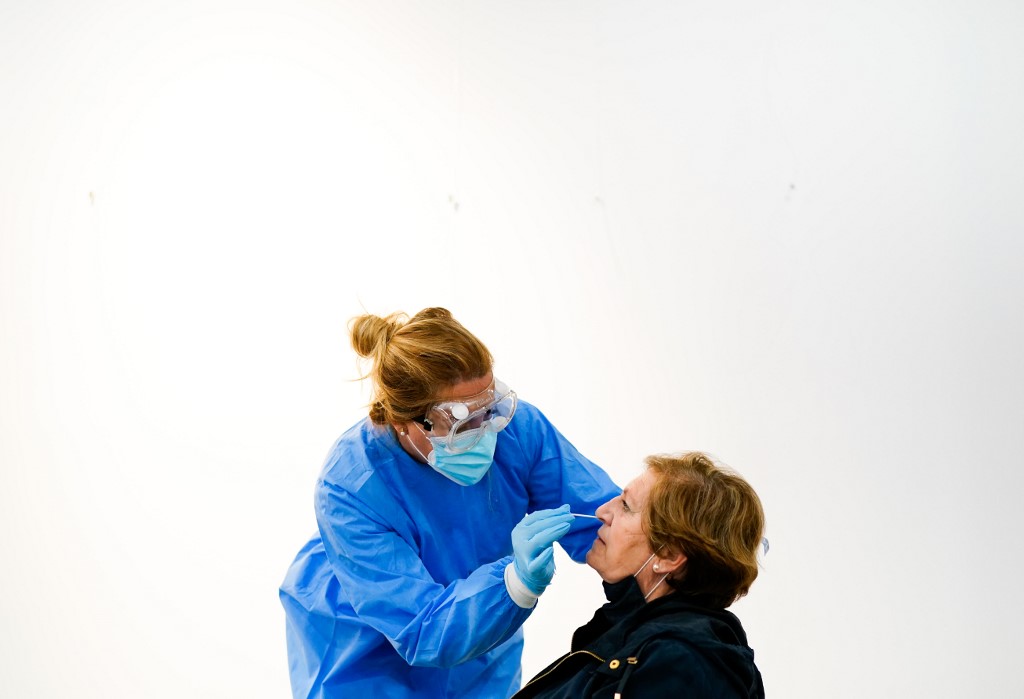Madrid and its suburbs, the region in Europe where a second coronavirus wave is expanding by far the fastest, are edging toward stricter curbs on personal movement and social gatherings after a political dispute that has angered many Spaniards.

In this handout photo released on September 29, 2020 by the Comunidad de Madrid regional government, a healthcare worker collects samples for a coronavirus quick diagnosis test that delivers results in 15-30 minutes at a test facility at the Puente de Vallecas neighborhood in Madrid. (Photo: AFP)
Health officials from Spain’s central government and the Madrid region agreed late Tuesday on a set of health metrics that should dictate standardized restrictions in cities with a population of 100,000 or more. The new plan needs to be approved at a meeting with health officials from all Spanish regions later Wednesday.
The deal, outlined by Spanish Health Minister Salvador Illa, follows weeks of a sour public disagreement on how to tackle uncontrolled virus clusters in Madrid, the Spanish capital.
The central left-wing government of Prime Minister Pedro Sánchez was demanding tougher action in Madrid that wouldn’t only target the city’s working-class neighborhoods, while the Madrid government, in the hands of a center-right coalition, resisted a city-wide partial lockdown for fear of damaging the regional economy further.
Madrid is leading the new wave of infections in Spain and Europe.
The Madrid region has a two-week infection rate of 784 cases per 100,000 residents, 2.5 times higher than a national average of 294 cases and seven times more than the average rate in Europe and the U.K., which stood at 94 last week, according to EU statistics.
Spain has seen more than 748,000 infections and has a confirmed virus death toll of over 31,400, but experts say all numbers understate the true toll of the pandemic due to limited testing and other factors.


